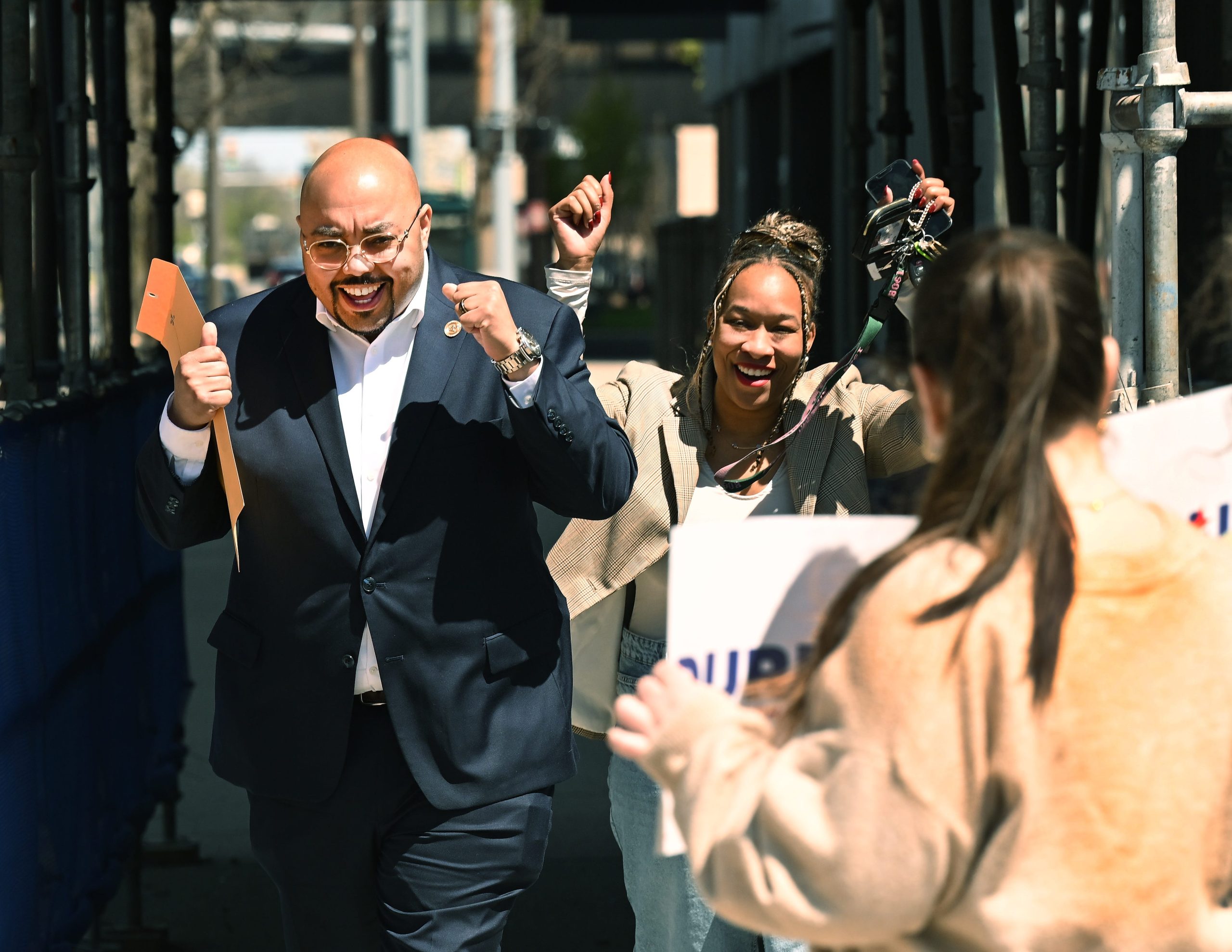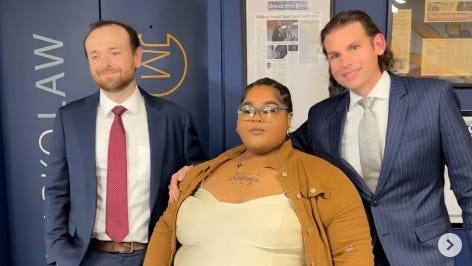Detroit Rapper Sues Lyft Over Allegations of Weight Discrimination
In a significant legal development, a Detroit rapper has initiated a civil lawsuit against the rideshare giant Lyft, asserting that a driver denied her a ride based solely on her weight. Dajua Blanding, who is professionally recognized as Dank Demoss, filed her complaint in the Wayne County Circuit Court on January 18, drawing attention not only to her personal experience but also to broader issues of discrimination in the transportation industry. The case highlights the need for awareness and action against weight discrimination, an often overlooked and pervasive issue in society.

The Incident that Sparked the Lawsuit
The incident in question occurred on January 18, coinciding with a highly anticipated playoff game between the Detroit Lions and the Washington Commanders. This event captured the attention of many local fans, who were eager to catch the action and celebrate with friends and family. Blanding had arranged for a Lyft ride to her cousin’s house to watch the game, having pre-paid for the service. However, when the driver, who has not been publicly identified, arrived approximately 10-15 minutes late in a Mercedes Benz sedan, he reportedly refused to allow her entry into the vehicle.
According to the lawsuit, when Blanding inquired about the driver’s refusal, he allegedly stated that she was “too big” for his car, claiming that his tires could not support her weight. This troubling assertion raises questions about the biases that underlie such statements and reflects a societal stigma surrounding body size. Blanding firmly contended that she could fit comfortably within the sedan, but the driver insisted that she should have ordered a Lyft XL vehicle, which is designed to accommodate larger groups and passengers and carries a higher fare. This insistence seemed less about the actual capacity of the vehicle and more about the driver’s personal bias against her size.
The Impact of Discrimination
The repercussions of this encounter were immediate and significant for Blanding. The driver ultimately canceled her ride and drove away, leaving her unable to attend the planned gathering at her cousin’s house. This not only disrupted her evening but also contributed to feelings of exclusion and distress. The lawsuit outlines a range of damages she claims to have suffered as a direct result of the driver’s actions. These include stress, humiliation, embarrassment, and emotional turmoil, alongside additional costs for legal representation and damages that will be determined during the ongoing litigation process. The psychological toll of such experiences can linger long after the incident, affecting one’s self-esteem and social interactions.
A Broader Discussion on Weight Discrimination
Blanding’s lawsuit raises important questions about weight discrimination, a topic that is often overlooked in discussions of civil rights. The legal landscape surrounding body image discrimination is complex, with many individuals finding it challenging to seek justice. Through her legal representation, attorney Jon Marko, she argues that the driver’s refusal was a form of weight-based harassment that violates the Michigan Elliott-Larsen Civil Rights Act. He emphasized that denying someone transportation due to their weight is comparable to refusing service based on race or religion. This stance calls for serious reflection on societal norms regarding body image and acceptance. It also highlights the need for clearer policies within businesses to protect individuals against such discrimination, ensuring that all customers are treated equally.
Lyft’s Response and Company’s Stance on Discrimination
In the wake of the lawsuit, Lyft has refrained from commenting on the specific details of the incident, citing the ongoing litigation. However, a spokesperson for the company reaffirmed their commitment to combating discrimination, stating, “Lyft unequivocally condemns all forms of discrimination — we believe in a community where everyone is treated with equal respect and mutual kindness.” This statement reflects the company’s attempt to align itself with broader societal values. The spokesperson noted that all Lyft drivers operate as independent contractors, which complicates the company’s responsibility in individually reported cases of discrimination. This raises questions about accountability and the effectiveness of current partnership frameworks that govern driver behavior and customer interactions.
The Broader Implications of the Case
This case does not only pertain to one individual’s experience but signifies a larger societal issue regarding how overweight individuals are treated within various public spaces. The public’s reaction to weight discrimination is evolving, with many advocating for a more inclusive dialogue that recognizes the dignity of all individuals, regardless of size. The growing awareness around body positivity and acceptance has propelled discussions about the need for changes in how services are provided to individuals of all shapes and sizes. Such a shift could influence not just rideshare policies but also extend to industries such as fashion, healthcare, and hospitality, reinforcing the idea that discrimination based on appearance is both unacceptable and damaging.
Dank Demoss: A Rising Voice in the Music Industry
Dajua Blanding, known as Dank Demoss, has cultivated a significant social media presence, boasting over 173,000 followers on Instagram. She also has a growing audience on music streaming platforms, with approximately 1,247 monthly listeners on Spotify. Her latest single, “I Miss You,” released on January 4, showcases her musical talents and connects her to a community that has rallied around her during this challenging time. This incident illustrates the intersection of personal struggles and public personas, as Blanding’s platform provides her not only with artistic opportunities but also a means to raise awareness about social issues that affect many.
Upcoming Court Date
The legal proceedings are ongoing, with a hearing scheduled for 8 a.m. on April 20. The outcome of this case could set important precedents for how weight discrimination is treated legally and socially. As Blanding continues to fight for her rights, her case may resonate with many others who have faced similar discrimination, potentially sparking a larger movement advocating for equality and respect for all individuals, irrespective of their body size. This case also serves as a critical inflection point for rideshare companies to review their policies and implement better training programs that promote inclusivity among drivers.
As the legal community and society at large await the court’s decision, Blanding’s lawsuit serves as a crucial reminder of the ongoing challenges that individuals face regarding body image and discrimination in everyday situations. By bringing her experience to light, Dank Demoss not only seeks justice for herself but also aims to inspire a change in attitudes surrounding weight discrimination, fostering a more inclusive environment for future generations.
















